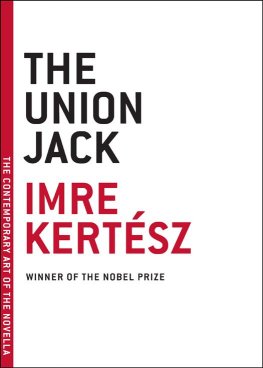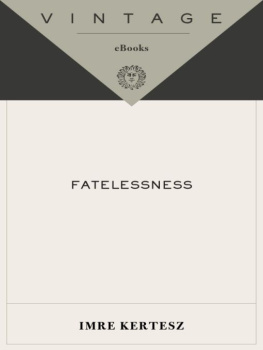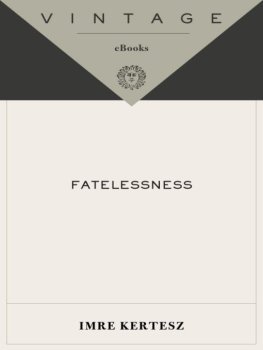
The old boy was standing in front of the filing cabinet. He was thinking. It was midmorning. (Relatively getting on for ten). Around this time the old boy was always in the habit of having a think.
He had plenty of troubles and woes, so there were things to think about.
But the old boy was not thinking about what he ought to have been thinking about.
We cannot know precisely what he was thinking about: all one could see was that he was thinking, not what he was thinking. It could be that he was not thinking at all. But then it was midmorning (relatively getting on for ten), and he had got used to being in the habit of having a think around this time. By now the old boy had acquired such a routine of having a think that at these times he was capable of giving the impression of having a think even when he was not thinking, and perhaps even when he imagined he was thinking. Thats the honest truth, not to put too fine a point on it.
So the old boy stood thinking (absorbed in his thoughts) in front of the filing cabinet.
At this juncture we can hardly avoid saying something about the filing cabinet.
The filing cabinet was a direct descendent of one of those corner bookcases the two wings of which occupied the southwest corner of a west-facing room, precisely from the southern edge of the longitudinally north-south window surface to the corner, and from a chest of drawers placed along the line of the longitudinally east-west wall to the same corner, against a roughly 50-inch-wide protrusion of the wall the purpose of which no one had ever been able to establish and which was covered over (out of bashfulness, so to speak) by a glued-on (and very messily glued-on at that) wooden board (an appurtenance of the bookcase, as it were), if not quite up to the ceiling, then at least to the full height a good six feet, in other words of the bookcase.
If we are going to go into this level of detail, we cannot pass over the fact that the above-mentioned bookcase itself had been put together from the linen drawers of two former divan-beds through the ingenuity of a neighbourhood carpenter, whereas a more distant upholsterer had fashioned from the upholstery of the divan-beds two modern sofas, which were still standing, re-covered to be sure, in the western and eastern corners of the rooms north-lying wall.
It may be recollected that it was in the midmorning (relatively getting on for ten). We are now in a position to supplement that with further details: it was a splendid, warm, slightly humid but sunny late-summer (early autumnal) morning.
While the old boy at this relatively midmorning hour getting on for ten was standing in front of the filing cabinet and thinking, he was fleetingly subject to a temptation to close the window.
He didnt have the heart to do it, however, because the warm, slightly humid but sunny late-summer (early autumnal) morning outside was so splendid.
It was as if a pale azure-tinted bell jar had been overturned onto the old boy, standing and thinking in front of the filing cabinet, and his wider environs.
That simile, like apt similes in general, is aimed at heightening sensitivities through the associations it evokes. For what we must also imagine are the countless sources of noise and smells in a very busy street under a tightly sealed bell jar, because that was the sort of street overlooked by the window, slightly to the south of which or to the left, if we stand facing him the old boy was standing and thinking in front of the filing cabinet.
It was an odious street.
The Slough of Deceit, as the old boy called it.
In reality it was just a side street. (Officially speaking).
Nonetheless, jammed as it was between two main thoroughfares, the side street was very busy coping how could it not have been? with the traffic from the two main thoroughfares.
On the kerbs of the sidewalk, which ran in a longitudinally north-south direction, were mounted various signposts (so many flagrant symbols of futility), whereas the southern debouchment of the street, at the junction of one forking main thoroughfare and three converging side streets, was closed off by a traffic lamp, which behaved as if the street were indeed a side street, so that out of the herd of cars of every conceivable size, from midget minicars to the giant towing units of heavy-goods vehicles (along with the corresponding exhausts and harmonics) (the latter sometimes in surprising discrepancy, yet more often than not proving to be proportionate, to the size), which honked, vroomed, and tremulously fumed before it, its permitting a mere two or three at a time to proceed before changing back to red.
Officially no trams ran along the street.
Unofficially, however, all trams travelling to or from one particular depot along one of the two main thoroughfares in point of fact effected their route, as if it were nothing to make a fuss about, by progressing via this side street jammed between the two thoroughfares.
A bellowing, rattling, grinding, rattling, screeching, and unbridled tumult boiled up from the Slough of Deceit as from the depths of a bubbling cauldron, among exhaust gases that were sometimes blackly louring, sometimes merely grizzling, whereas after the onset of evening (before the onset of winter) (for thus far we have not seen fit to so much as mention the chimney stacks) turning more a torpid bluish until toward the dawn hour of 3:30 the first harbinger of the swarms of buses that would be emerging from their garages made its appearance (and with it a fresh days fresh black gases), hurtling at breakneck speed and twitching its empty rear-end like a mare in heat, at the northern debouchment of the street.
This street, running in a longitudinally north-south (or south-north) direction, was lined by not more than ten or fifteen buildings, yet an entire historical epoch had stamped its mark on even that relatively small number of buildings a mark which, curiously enough, found chronological expression, going spatially in a south-north longitudinal direction.
The first half of the Forties had fallen on the middle of the streets eastern side.
Those years had been characterized by the war, its buildings by an urgent investment of capital and the attendant corner-cutting and wartime material shortages.
The old boy lived in one of these buildings, in a second-floor flatlet (a bed-sitting room with hallway, bathroom, and kitchenette, 28 m2 in all, rented council property, at a monthly rental which had grown, in line with the general inflation of rents, from 120 forints to currently still just 300 forints), registered temporarily for decades by right of marriage (since his permanent residence permit was valid, by right of his being an immediate family member, for his mothers apartment, though he never lived there, not even temporarily, but seeing that it was ultimately inevitable that the old lady, for all the hopes that she would carry on to the extreme limit of human life ) (in short, on being left vacant as a consequence of this ultimately inevitable event, the apartment would, by virtue of this subterfuge, pass on to the old boy) (provided this subterfuge, as could be anticipated on grounds of customary law, was respected by the competent authority within the council) (and despite the fact that it too was just a single room, albeit a large room with all amenities and in the green belt, on account of which this apartment where the old boy was registered as a permanent resident, though he never lived there, not even temporarily, was undoubtedly more serviceable, if only as the basis for a swap).
Since the furnishings of the flat the one in which the old boy lived permanently, albeit registered only as a temporary resident had been kept to the bare necessities from the first, one may confidently hope that those items that we shall pick out below as the most necessary of the bare necessities are at least not unnecessary in the context of our story.
Next page












